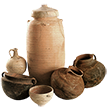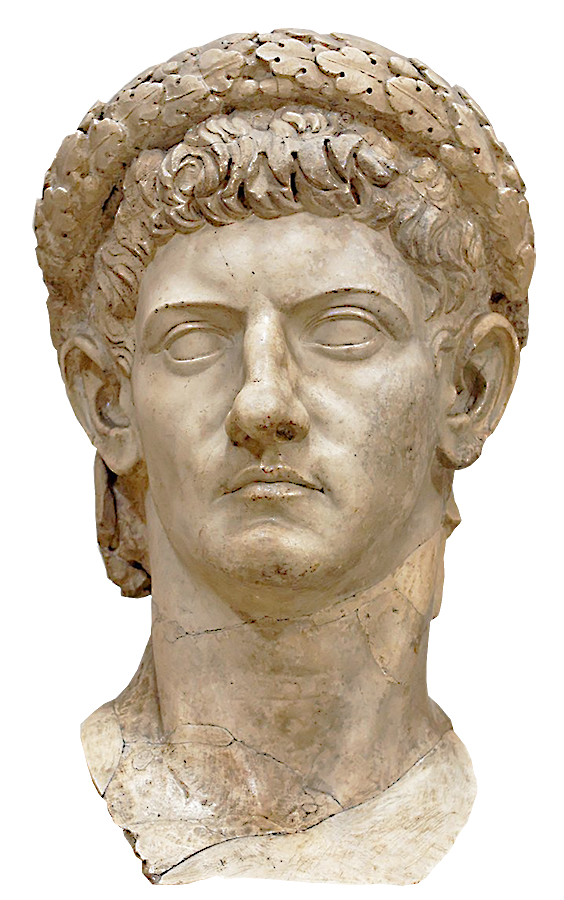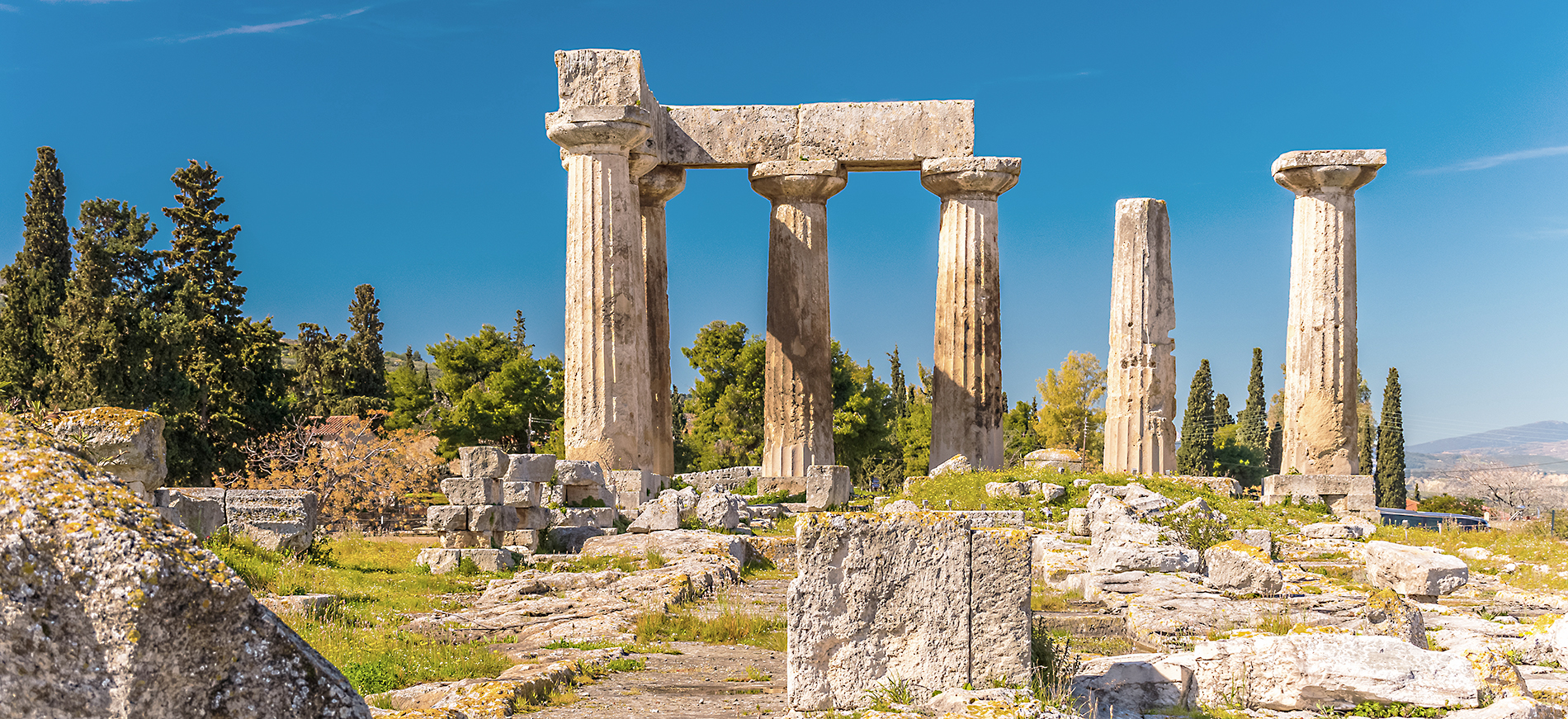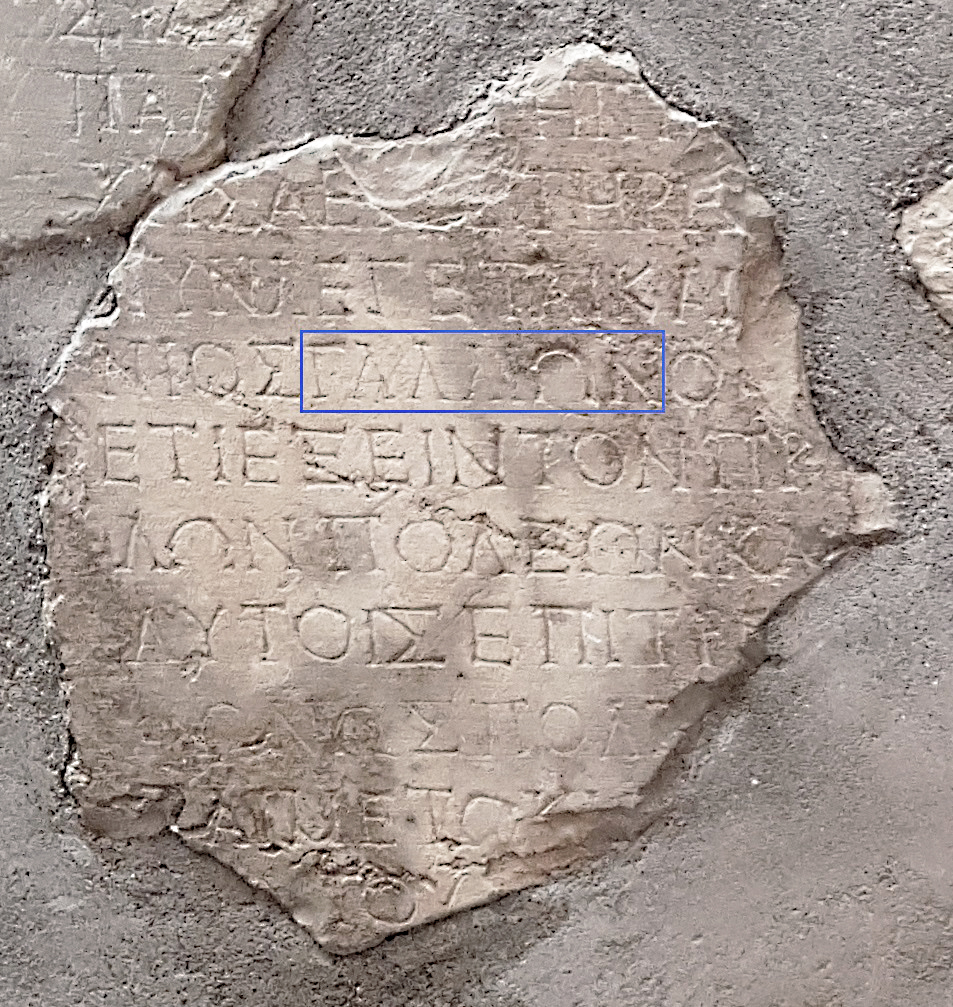
Bible, History, Archaeology
History,
Archaeology
The apostle Paul in Corinth
The ruins (detail) of part of ancient Corinth with the Temple of Apollo. Pixels outloud.
Historical background

Image opposite: Bust of Claudius as Jupiter (10 BC - 54 AD). Marble, Roman work, circa 50. Rome, Museo Pio-Clementino. © Jastrow.
He expelled the Jews from Rome because of unrest caused by a man named «Chrestus.» Experts generally believe that the misspelled Latin name «Chrestus» refers to Christ (Christus).
Corinth sought above all to enrich itself through trade, and defended its freedom against the hegemonic intentions of other Greek cities, then against Macedonian, Achaean and finally Roman ambitions. These expensive pleasures explain the proverb: «not everyone is allowed to go to Corinth».» (Horace, ep. 1,17) and the expression used at the time: «se corinthianiser» (to debauch oneself).
A special encounter
In Corinth, Paul met a couple who had fallen victim to the edict of expulsion of the Jews from Rome promulgated by Claudius in 49, Caligula's successor since 41. This edict is confirmed by a famous passage in Suetonius: Life of Claude.
This Jewish couple, from a Roman family, came from the province of Pontus (in Asia Minor, on the Black Sea or Pontus-Euxinus). Their names are Latin: Aquilas (= eagle), Priscilla (diminutive of Prisca = ancient, 2 Timothy 4:19). Always named together, the woman first, and often as receiving the Church into their home (1 Corinthians 16:19). They are tentmakers like Paul. Their common trade, in this prosperous city, brought them together. Initially colleagues, they soon became brothers.
The Delphi Stone with the mention of the proconsul Gallion
Gallion's proconsulship in Achaia around 52 AD is attested by an inscription found at Delphi during excavations carried out by the École française d'Athènes in 1905. This inscription, incompletely preserved in nine fragments, bears a text from the emperor Claudius and mentions the proconsul Gallion, before whom the apostle Paul appeared, as reported in Acts 18:12.
While Gallion was governor of Achaia, probably in the summer of 51, Paul, who had been staying in Corinth for some time, was summoned before his tribunal by the city's Jews and Sosthenes, head of the Corinthian synagogue - an episode in the rivalry between Jews and Christians at the time. Gallion refused to accept the charges brought against Paul.


